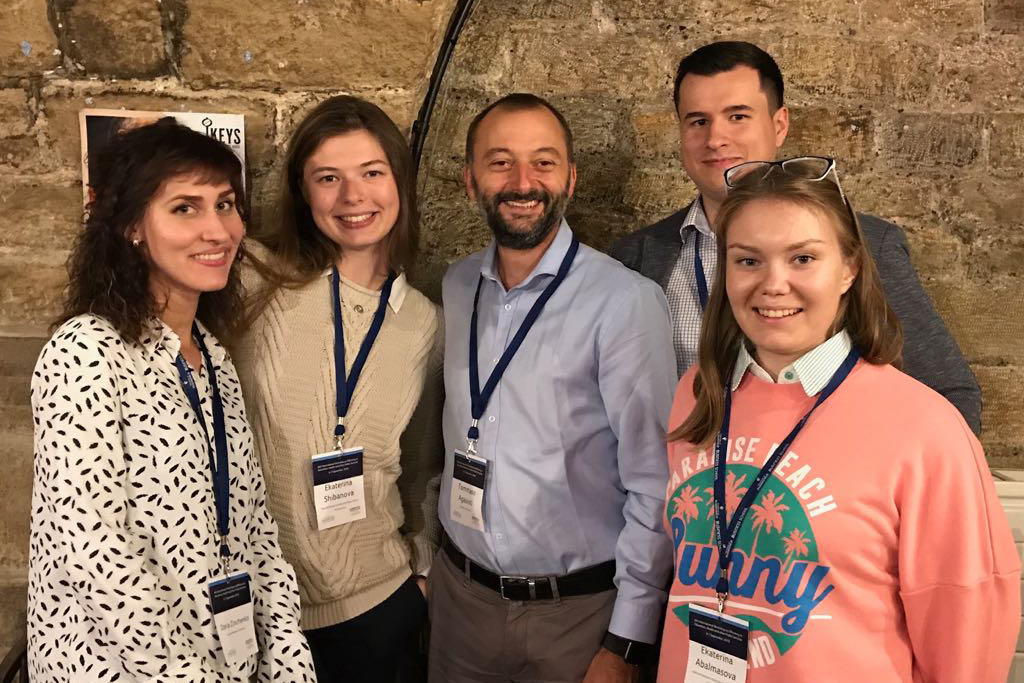HSE and Politecnico di Milano to Join Forces in Studying University Performance and Efficiency

A cooperation agreement was recently signed between HSE and Politecnico di Milano (Department of Management, Economics and Industrial Engineering) to jointly embark on a large-scale study entitled Efficiency, Performance and Impact of Higher Education Institutions (EPI). According to the agreement, the IOE Laboratory for University Development will act as the principal R&D venue for this initiative, while Dr. Tommaso Agasisti, Associate Professor at Politecnico di Milano and one of Europe’s most renowned experts in education economics, will take up overall project supervision.
‘Topics of university performance and efficiency have been increasingly emphasized in recent policy and public discourse across the globe. This reflects more heightened expectations by various stakeholders about payoffs that university systems should yield to multiple socio-economic domains, including in single industries, within and beyond their host communities, specifically given the vast financial resources that are being ploughed into the realm of higher education,’ Tommaso Agasisti explains. ‘The EPI project agenda involves a huge array of questions to address as we seek deeper insights into which factors and mechanisms determine how universities can effectively perform and contribute to socio-economic environments. The study is going to explore, among other things, the efficiency of current and prospective investments in higher education, how internal factors, such as managerial practices, as well as external features of the environment are implicated in university performance, and so on.’
With its inception dating back to a series of joint papers by research teams at IOE and Politecnico di Milano, the EPI project did not take long to grow into a high-scope and far-reaching R&D endeavour. The parties believe EPI is well positioned to spark momentum for a more meaningful international discussion of the topics in question, which would be aimed at attracting more educational scholars from other countries.
The main areas that IOE has focused on so far within the stated R&D domain include, among others, assessing multi-level impacts from academic excellence initiatives, analysing implications of performance-based funding models for university strategy and performance, evaluating university contributions to socio-economic development of Russian regions, etc. EPI encourages active participation by early-career scholars, enabling them to seek out first-hand advice and build collaboration with accomplished academics in the realm of higher education.
See also:
University Codes of Conduct Should Be Concise and Precise
The HSE University International Advisory Committee met online on May 19 to discuss the proposed Codes of Conduct for faculty and students, as well as assess the university’s transition to online learning.
Project 5-100 International Council Confirms HSE’s Leadership
From October 26-27, a regular meeting of the Russian Academic Excellence Project 5-100 was held in Kaliningrad. The academic institutions involved in the project presented the results of their work and plans for the upcoming period of their respective roadmaps.
HSE Enters Second Stage of Project 5-100 a Leader
The Higher School of Economics is among the top four universities ranked by the Council on Enhancing the Competitiveness of Russia’s Leading Universities. HSE is the only university participating in the project to have kept its leading position in the ranking. The university’s Vice Rector, Maria Yudkevich, who also presented HSE’s Roadmap at the Council’s meeting in Tomsk, talks about how the university was able to achieve this and describes what HSE has set as its priorities in the next stage of the fight to enter the list of the world’s strongest universities.
New Structure of the HSE
The Higher School of Economics will undergo a number of structural changes in spring 2014. ‘Big’ faculties, which will provide educational programmes, are being created as part of the university. The faculties will include departments and schools, as well as research centres and departments of continuing education. The new university structure is part of the roadmap aimed at improving the HSE’s global competitiveness.
Spaces for Education: Open and Functional
On October 30th at a regular ‘Topical Research and Development in Education’ seminar at the HSE Institute for Educational Studies, Alastair Blyth, Policy Analyst at OECD Centre for Effective Learning Environments, talked about ‘Changes in perception of spaces for self-education, innovation and knowledge exchange’.
Author of the Shanghai Ranking visits the HSE
On October 18th 2011, as part of the preliminary programme of the 3rd International Conference of the Russian Association of Higher Education Researchers, Professor Nian Cai Liu, author of the world-renowned Shanghai University Ranking, gave a lecture at the HSE.


